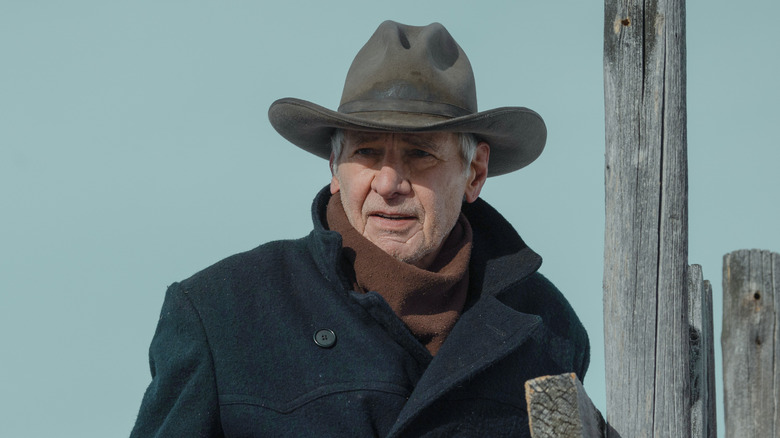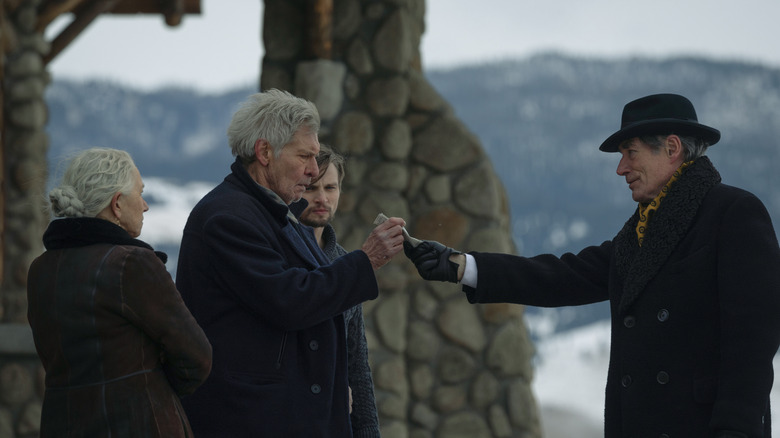1923's Tax Debacle Just Doesn't Quite Add Up For Fans
One of the many questions that leaves us hanging on a cliff at the end of the first season of "1923" is, of course, who will end up controlling the Yellowstone ranch? That's not exactly a mind-blowing query. Arguably, the question of who controls the land is at the center of just about every action taken in Taylor Sheridan's universe.
The reason it's a question at the end of Season 1, however, is that Donald Whitfield (Timothy Dalton), who by now could be reasonably called the primary antagonist in "1923," has made some legal and financial maneuvers that, should they prove successful, will snatch Yellowstone right out from under the Duttons. Whitfield, without Jacob Dutton's (Harrison Ford) knowledge, bought out his tax debt, and, should Jacob be unable to pay Whitfield within a matter of weeks, the ownership of the ranch will revert to him.
In the universe of "1923," it's a shrewd move and one that reflects a shift in dominance from brute force to legal and bureaucratic means. For many viewers though, such a move doesn't pass the realism scratch test. In a post in the r/1923Series subreddit, u/UntowardAdvance included it in a list of "Things that didn't happen or should've happened in 1923."
"If you could simply pay back taxes and take possession of their property if they don't pay you, everyone would do it," they wrote. "That's not the way tax liens work."
The tax story plot is unfounded
In a comment under the original post, u/moose184 wrote, "We know he doesn't get it because the ranch stays with the Duttons and they could always just get a mortgage like the bank said and pay it back with that." The first reason may not be as ironclad as the comment makes it out to be. After all, the Duttons could lose the ranch in the course of "1923," only to gain it back at a later date, thus ensuring that it's in the Duttons' hands by the time "Yellowstone" starts. The second argument, however, has a good amount more veracity to it. It is mentioned in the show that a mortgage, however unfavorable the terms may be, would keep the ranch in the possession of the Duttons.
What's more, the idea that Whitfield would have been able to pay off Jacob's tax lien without the latter's permission seems somewhat suspect. Even more suspect is the idea that it puts Jacob in a private contract with Whitfield without his say-so. In a separate post on the subreddit, u/ChaluppaBatmanJr wrote, "I'm almost positive that the tax story plot is unfounded — if there was no contract between the parties prior to the tax payment, there's no obligation."
It's a plot hole that widens the more you think about it. And given that there is no confirmed release date for "1923" Season 2, we may yet have a while to think about it.

